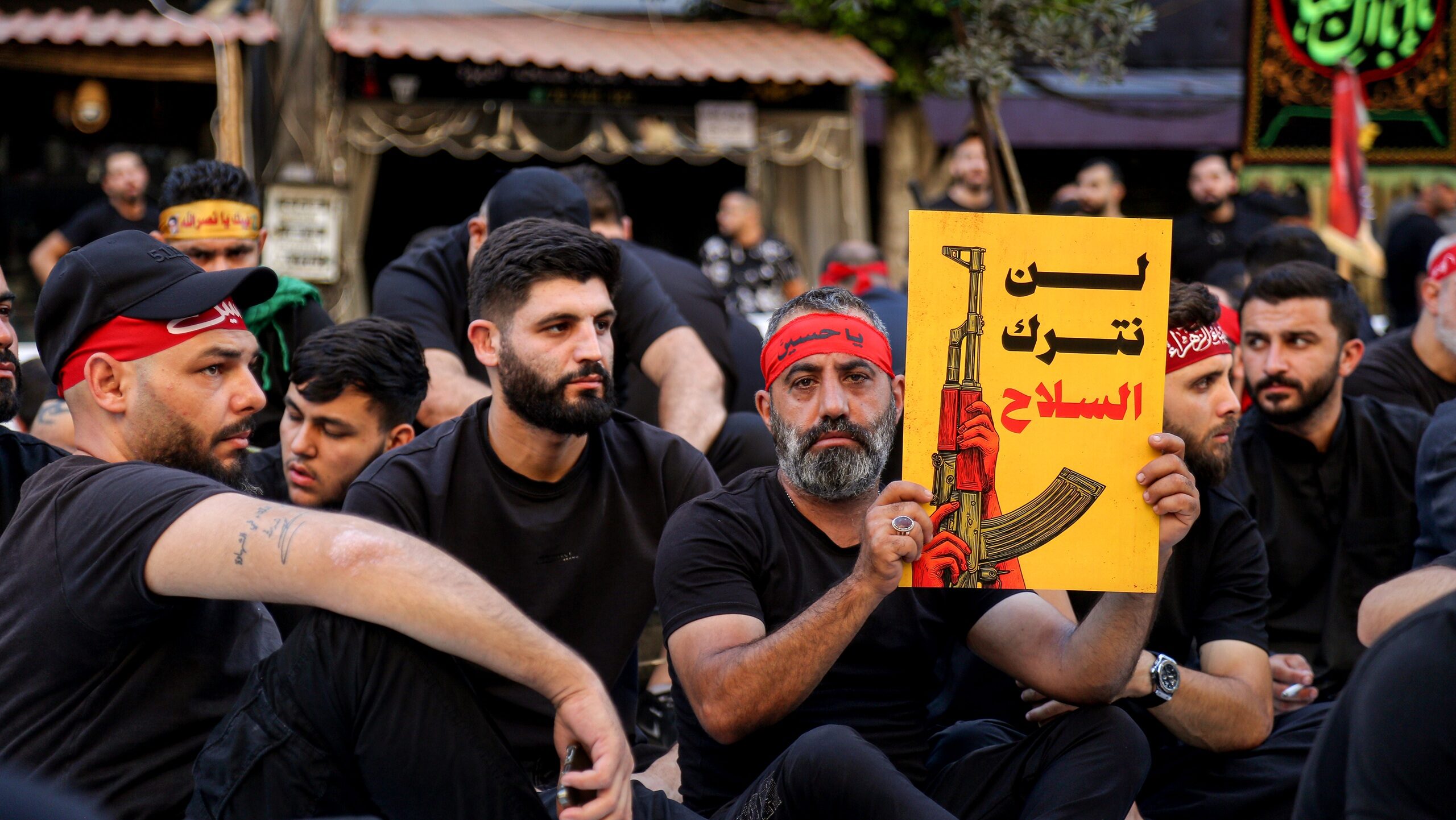Hezbollah’s Weapons Keep Lebanon in Political and Economic Deadlock
Lebanon’s long-running debate over Hezbollah’s weapons has never been more urgent, and as Giorgia Valente reports for The Media Line, experts say that while the government is inching forward, true disarmament remains a fantasy. Nearly two years into the Gaza war, Hezbollah’s vast arsenal—once framed as protection against Israel—is now viewed by many Lebanese as a crippling obstacle to sovereignty, economic revival, and regional stability.
Abraham Levine of the ALMA Center told The Media Line that expecting Hezbollah to disarm ignores the group’s very identity. “The flag has a gun on it. It doesn’t have a map of Lebanon,” he said. “Expecting them to hand back their weapons is simply unrealistic.” Patricia Karam of the American Task Force on Lebanon agreed, describing Hezbollah as too politically entrenched and too valuable to Iran to be stripped of its role without both domestic consensus and real international leverage.
This holiday season, give to:
Truth and understanding
The Media Line's intrepid correspondents are in Israel, Gaza, Lebanon, Syria and Pakistan providing first-person reporting.
They all said they cover it.
We see it.
We report with just one agenda: the truth.


Internal divisions add to the stalemate: Christian parties demand total disarmament, while Hezbollah and Amal refuse deadlines, and the Free Patriotic Movement has reversed earlier compromises. The Lebanese Armed Forces remain respected but underfunded, unable to enforce disarmament without broad political will.
International resolutions and sanctions have fallen flat, and while Gulf and Western aid could offer leverage, both Levine and Karam stress that Lebanese leaders themselves must decide. Public opinion is shifting, with Hezbollah’s Shiite base holding firm but non-Shiite support eroding after years of conflict.
For Lebanon, the stakes are enormous. Donors demand disarmament to unlock investment, while regional peace—even a deal with Israel—seems plausible only if Hezbollah lays down its arms. As Valente concludes, Lebanon’s future may depend less on external pressure than on whether its own leaders are ready to face the group head-on.

